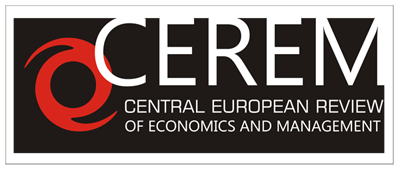Central European Review of Economics and Management (CEREM)
Call for papers
21st century skills, individual competences and personal capabilities for sustainability: a management and education perspective.
Guest Editor:
- Wim Lambrechts, Open University of the Netherlands, wim.lambrechts@ou.nl
Background
This special issue aims to focus on the diversity of viewpoints and perspectives surrounding the concept of 21st century skills, individual competences and personal capabilities oriented towards sustainability. Different models, concepts and lists of skills and competences have been presented, both from a management and education background.
However, business settings and educational settings have been elaborating on different interpretations and perspectives. In business settings, focus has been set on human resource perspectives and (economic) rankings of skills needed in the near future (e.g. by 2020). Depending on the focus and the timeframe, different skills appear in these rankings, e.g. critical thinking, creativity, and problem solving skills. In educational settings, framed within social constructivism theory, focus has been set on a more profound selection, definition and critical interpretation of sustainability competences. In such approaches competences are interpreted as the holistic notion of knowledge, skills, values and attitudes.
Rankings of skills and conceptions of individual sustainability competences provide future directions for management and education. However, different interpretations from business and educational backgrounds have become mixed and used interchangeably, without consideration of validity issues of such approaches. This situation has led to a blurry discussion and a problematic interpretation and integration of skills and competences.
A diversity of perspectives enriches the debate, on the premise that contributions start from a clear conceptualization and definition of the topic. In the context of sustainability, striving towards a generally accepted definition and interpretation of the concept of 21st century skills, competences and capabilities becomes difficult, if not impossible. Therefore, this special issue invites a plurality of contributions from different backgrounds and perspectives on the topic.
Examples of topics which might be of interest are:
- Interlinking different skills and competence frameworks (e.g. interplay between sustainability and entrepreneurship; interlinking creativity and research competences);
- Ethical perspectives on 21st century skills (e.g. how to align 21st century skills in a business ethics context);
- Individual sustainability competences in specific sectors (e.g. tourism; supply chain management)
- Skills, competences and capabilities in higher education settings (e.g. management education, business schools);
- Linking 21st century skills and competences for sustainability to specific Sustainable Development Goals (SDGs);
- National, European and global perspectives on sustainability competences (e.g. national policy initiatives; UNECE);
- Issues in learning and assessment of skills and competences in both business and education context;
- Issues of professional development on individual sustainability competences in different settings;
Further questions and abstract submission
Please send your abstract (maximum 1000 words) to dr. Wim Lambrechts (Open University, the Netherlands) via e-mail: wim.lambrechts@ou.nl
The abstracts should have the following structure:
Aim: The author(s) should shortly explain the reason or motivation for taking up the research problem (why is the topic important?), and what is the objective or aim of the research. The aim should be clearly formulated, and be specific enough to be achieved within the range of the paper.
Design / Research methods: The authors should clearly explain the way in which the aim or objective is achieved. The main research methods as well as the approach to the research should be provided that enable effective dealing with the paper’s aim.
Conclusions / findings: What are the main results of the research? The authors should refer to the analysis, discussion or results of the paper in order to show the main findings.
Originality / value of the article: Within the context of the current state of the art in science, what is new or what is the scientific value added of the paper? For whom would the paper be of interest?
Implications of the research (if applicable): How and to what extent can the results of the research be applied to practice? What are the consequences of application of the findings of the research to practice?
Limitations of the research (if applicable): Does the research imply directions or suggestions for future research? What are the limitations of the research methods used? What are the limitations of the implications of the research findings Keywords:
Keywords: provide 5 keywords in alphabetical order
JEL codes: provide the JEL codes applicable for your paper
Important dates:
15 September 2017: Submission of Abstract
1 October 2017: Notification of status invitation to submit full paper
15 November 2017: Deadline for submission of full paper
31 January 2018: Deadline for submission of revised paper (revision 1)
30 March 2018: Deadline for submission of revised paper (revision 2/final version)
June 2018: Publication
